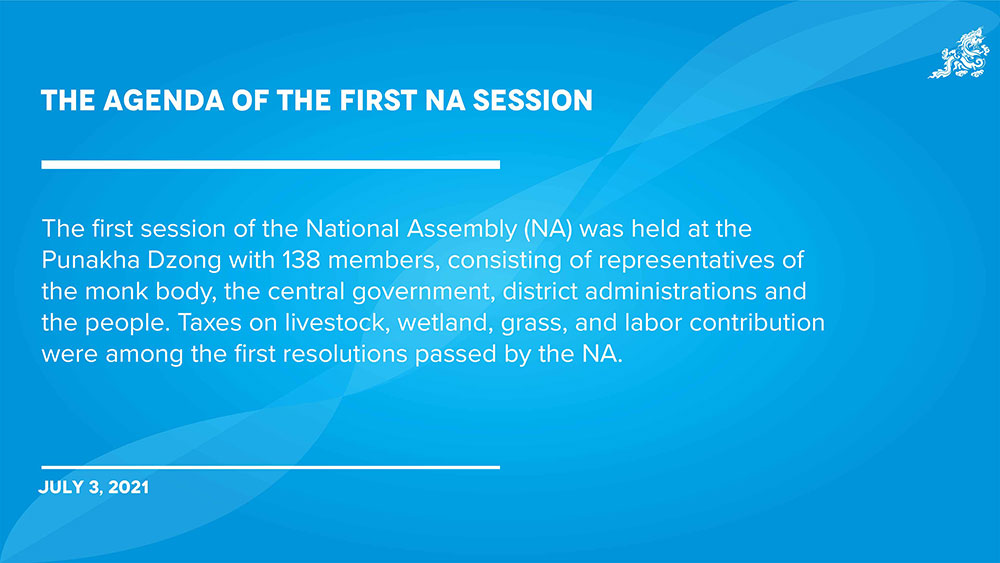Staff Reporter
The first Speaker of the National Assembly (NA) was the Rinpung Drungtshab in Paro, Dasho Kesang Dawa. He served from 1953 to 1955.
The first session of the NA was held at the Punakha Dzong with 138 members consisting of representatives of the monk body, the central government, district administrations and the people.
One of the first resolutions passed by the NA was on taxes on livestock, wetland, grass, and labour contribution.
The people of Haa district were required to supply 16 he-calves to the government livestock farm at Sambekha. The NA decided that the cowherders be permitted to pay Nu 45 per calf in lieu of animals.
Although the public of Tschochen or Thimphu owned large areas of land, they were unable to bring them under cultivation owing to the shortage of farm hands. Because of this, it has not always been possible for the people to pay taxes in kind for all the land they had. “In view of this problem, it was decided to realise tax only for the actually cultivated lands. This would also apply in equal measure to the districts of Paro and Wangdiphodrang,” the NA resolutions stated.
It was reported that His Majesty the Third King was not residing at Mangdey, now Trongsa, and as such, the number of horses stationed there for use of His Majesty was dropped considerably. The NA decided that the taxes being paid in the form of grass also be reduced.
In the previous years, it was obligatory for the people to carry 280 loads for Tshongpon (Trade agent of Trongsa district). It was decided to reduce the same to 200 loads only.
The public of Dagten Dungwog of Trongsa were to supply volunteer labour for the plantation and harvesting of Dagten fields and for the transportation of wheat of the Dungla Tensa fields. However, this was not applicable to the rest of the Trongsa people. In this connection, His Majesty was pleased to command that the supply of volunteer labour should apply equally to all sub- divisions under Tongsa district. Therefore, the public of Dagten requested that His Majesty’s command should be enforced accordingly.
Previously, the people of Sha (Wangdiphodrang) had to supply 59 leather bags to the store officer of Wangdi Dzong for packing rice. “Since His Majesty was pleased to exempt the collection of rice, the people of Sha requested that they be exempted from supplying leather bags unless and until it is required by the King,” the resolution stated.
Edited by Tshering Palden


